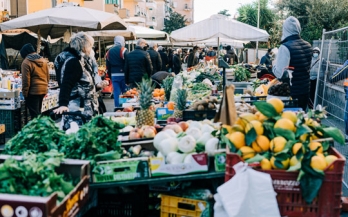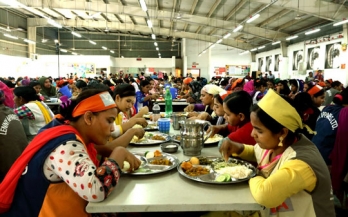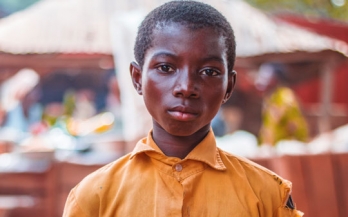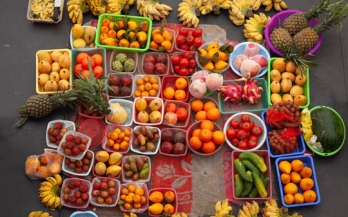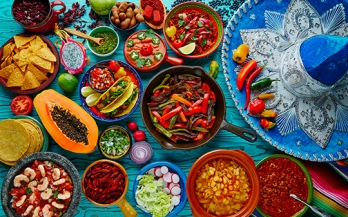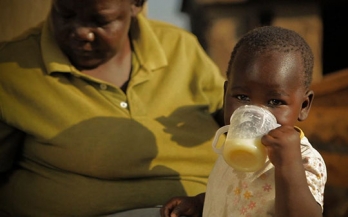As the importance of national level information on dietary intakes in low- and middle-income countries is increasingly recognized; reliable methods, tools and guides to support the compilation of quality food and nutrient intake data are needed. In general, guidance on how to adequately prepare for a dietary survey prior to embarking on data collection is scarce.
Understanding the rapidly changing situation for vendors in traditional markets and the consumers that rely on these markets can provide vital information for determining what is needed to ensure the availability of affordable, safe, nutritious food during the COVID-19 pandemic.
This study aimed to do something that had not been done before: apply business case thinking to worker nutrition programmes in supply chains, using a structured and systematic approach. The study extended the definition of "business case" beyond financial returns on investment to cover a broad range of possible motivations for companies and sectors to invest in nutrition in their supply chains.
There are many complex and political challenges faced by companies working with large and diverse supply chains. For the cocoa sector, child labour, attaining a living income and deforestation are often seen as the most urgent. However, one area that affects productivity, profitability and reputation but is relatively easy to solve is workers’ nutrition.
In January 2021, GAIN published its latest report "Business Accountability for Better Nutrition" listing concrete ways to improve business accountability by using a number of existing reporting tools to assess business impact on nutrition
EatSafe evaluated the regulatory and policy landscape for food safety in Nigeria at the national and regional levels, which included an assessment of existing regulations and resulted in recommendations for strengthening implementation.
Poor diet quality is a major cause of morbidity and mortality at all country income levels. Yet to date, low-cost, feasible metrics for population-level assessment and monitoring of diet quality are scarce. High-quality diets are safe, meet nutrient needs for healthy growth and development at all ages, and reduce risks of non-communicable disease.
With Kenya weathering the third wave of COVID-19, the Global Alliance for Improved Nutrition (GAIN) has continued to develop ways to mitigate the impact of the pandemic on livelihoods and SMEs in Kenya through the Keeping Food Markets Working (KFMW) programme.
The coronavirus (COVID-19) pandemic continues to disrupt life around the world, with a toll on human lives and economic activities. Its rapid global spread has affected millions of people already vulnerable to food insecurity and malnutrition due to the effects of conflict and other disasters.
The COVID-19 pandemic is a multiplier of vulnerability, compounding threats to food security and nutrition (FSN) while exposing weaknesses in food systems. In response, the Global Alliance for Improved Nutrition (GAIN) developed the Keeping Food Markets Working (KFMW) programme to provide targeted support to help sustain core food systems.
